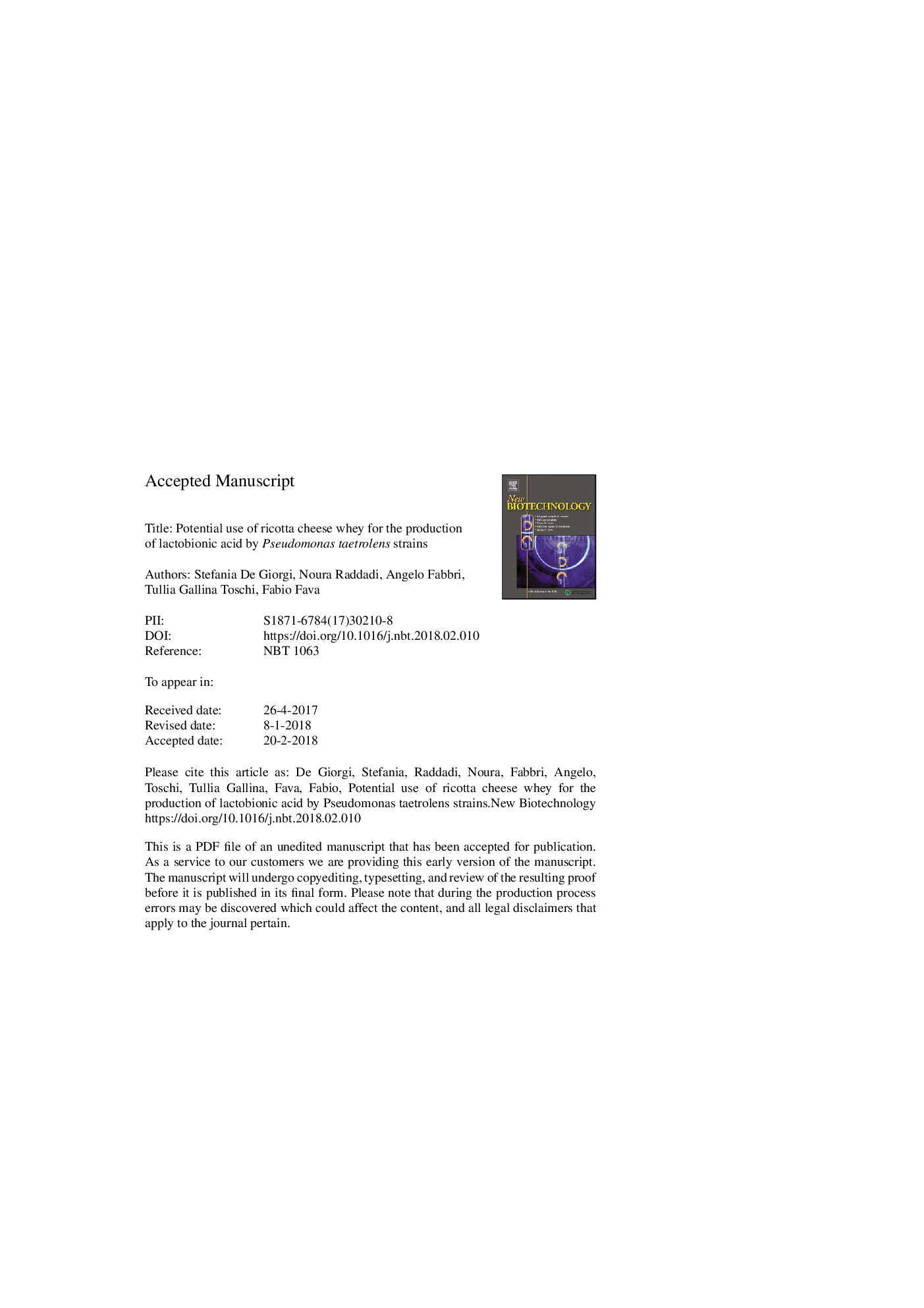| Article ID | Journal | Published Year | Pages | File Type |
|---|---|---|---|---|
| 6494845 | New Biotechnology | 2018 | 19 Pages |
Abstract
Lactobionic acid (LBA) is a fine chemical largely applied in the food, chemical, cosmetics and pharmaceutical industries. Here, its production from ricotta cheese whey (RCW), or scotta, the main by-product obtained from ricotta cheese production process and currently employed mainly for cattle feed, was evaluated. Among seven bacterial species tested, only two Pseudomonas taetrolens strains were selected after preliminary screening in shake-flasks. When autoclaved RCW was used, a lactobionic acid titer of 34.25â¯Â±â¯2.86â¯g/l, with a conversion yield (defined as mol LBA/mol of consumed lactose%) of up to 85â¯Â±â¯7.0%, was obtained after 48â¯h of batch fermentation in 3â¯L stirred tank bioreactor. This study is a preliminary investigation on the potential industrial use of scotta as a substrate for bacterial growth and lactobionic acid production that details the possible biotechnological valorization pathways and feasibility of the process.
Related Topics
Physical Sciences and Engineering
Chemical Engineering
Bioengineering
Authors
Stefania De Giorgi, Noura Raddadi, Angelo Fabbri, Tullia Gallina Toschi, Fabio Fava,
